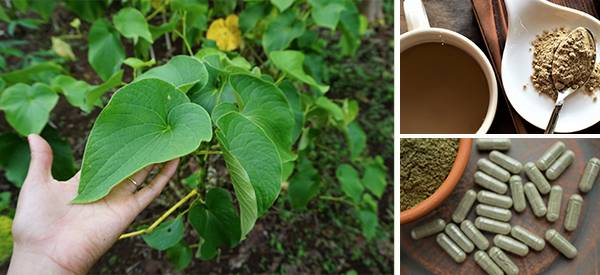
Kava: The Most Powerful Herb To Reduce Stress
With everything that is going on in the world, many of us are experiencing more stress and anxiety in our lives. Stress and anxiety can manifest themselves in different ways, including racing thoughts, the inability to sleep, and even panic attacks. Some days it may feel like there is nothing you can do to calm down.
One really effective herb to help treat anxiety and reduce stress is Kava.
About Kava
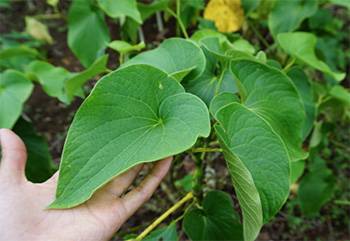
Kava, Piper Methysticum, is a plant native to the Pacific islands. A member of the pepper family, it is a shrub with heart-shaped leaves. It grows to about six feet with roots reaching about two feet below the soil.
It is a tropical plant that requires temperatures between 70-90 degrees Fahrenheit and between 70-90 percent relative humidity.
Kava can not reproduce sexually as even when hand-pollinated the flowers do not produce fruit. Therefore, it is propagated by cuttings.
Kavalactones
The active compounds in kava are called kavalactones. Kavalactones are responsible for the beneficial effects of kava.
Kava can reduce anxiety, protect the neurons in your brain, and help lessen feelings of pain. The greatest concentrations are found in the roots so it is the root that is used medicinally. Roots should be harvested when the plant is at least four years old, though the noble kava only comes from five-year-old roots.
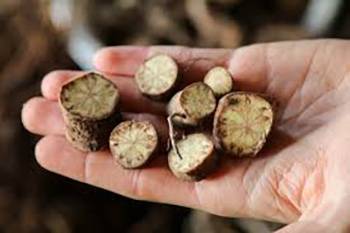
When purchasing kava it is important to check the number of kavalactones in the product. It may be listed either in milligrams or as a percentage.
If it is listed as a percentage you will need to do the math yourself to find out how many milligrams it contains. It is considered safe to consume less than 250 mg daily for several months but long-term use is not recommended.
Kava For Anxiety
Studies have shown that kava can be used as an effective treatment for anxiety and it does not have the same risks of dependencies as antidepressant medications. It can also help with sleeplessness caused by anxiety. It creates a feeling of calmness without affecting mental acuity.
However, kava should be used with caution as it has been linked to liver damage, especially when combined with alcohol or other medications. Kava can be consumed as a tea, tincture, or in capsule form.
Traditional Preparation
Pacific islanders traditionally use kava as a drink in rituals and at social gatherings. It is still a common practice throughout the pacific islands.
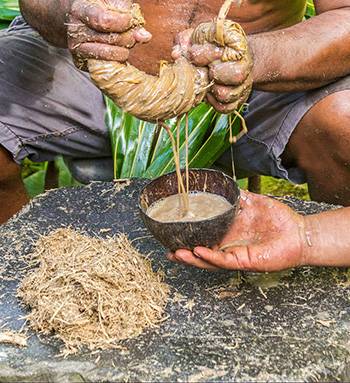
Historically, this was done by chewing the roots and then spitting them out but now kava is generally ground by hand. The ground root is then mixed with warm water and then kneaded for several minutes.
The intent is to emulsify the kavalactones into the water. The kneaded mixture is strained and the resulting liquid is consumed. It creates a relaxed euphoric feeling.
It is possible to buy kava and prepare it at home in a traditional manner. Make sure you are buying your kava from a reputable distributor and that it contains only the roots, no leaves or stems.
Kava Tea
The most common way to consume kava is tea.
Recipe:
- Measure out the right amount of kava root. Typically, in kava preparation, a standard serving size for one individual is 2-4 Tablespoons.

- Add the kava root to a strainer cloth and place it into a bowl.
- Measure out 8-12oz. of warm water per serving. Vary the amount of water depending on how strong you want your kava root tea to taste.
- Next, pour the hot water directly into the bag with the kava powder.
- Let the kava steep in the bag in the bowl for 5-10 minutes.
- Twist the top of your kava strainer closed and press out all the air. Knead the kava root in the bag in the water in the bowl. Alternate between kneading the kava and squeezing the bag to strain the liquid into the bowl.
- The water in the bowl will turn a nice milky brown color and begin to look like chocolate milk. After 5-10 minutes of kneading, wring the straining bag tight to remove all liquid.
Or you can simply pour warm water over the teabag and steep. You do want to ensure your tea does not heat above 140 degrees because heat will destroy the kavalactones. You may also want to add coconut milk to your kava tea to help extract the fat-soluble kavalactones.
Kava tea can be easily found with other herbal teas sold for relaxation.
When purchasing kava tea you want to check the number of kavalactones it contains, this will tell you how much tea you can consume per day. Beware of proprietary relaxation blends that contain kava because it is difficult to know for certain the number of kavalactones and regulate your dosage.
However, many people do not like the taste of kava so feel free to make your own blend by adding other pleasant-tasting ingredients to make your tea more palatable. Good choices are cinnamon or ginger.
Within 20 minutes of consuming the tea, you should begin to feel calmer and more relaxed.
Tincture
The most potent form of kava available is in a liquid form as a tincture.
Recipe:
- Mix kava powder/or thin-sliced root in jar jars with 160 proof vodka.

- Leave in the fridge for several weeks and shake occasionally.
- Strain through a cheesecloth into another mason jar to remove everything except the alcohol and pure kavalactones.
- Place in pan or bowl with a large surface area. The alcohol will evaporate leaving behind 100% kavalactones
You now have a pure kavalactone paste that is water-soluble.
You can also purchase kava tinctures ranging in size from two to six ounces. In the tincture, the kavalactones are extracted from the roots using alcohol. This creates a potent liquid that requires no additional preparation once it’s made. It is convenient for when you need a quick solution to feelings of anxiety.
Dosage:
Simply place a few drops of tincture beneath your tongue and your body will begin to feel the relaxing effects of the kava almost immediately. However, some people find they do not like the taste of tinctures. In this case, you can simply add the tincture to juice or another liquid to disguise the flavor. It is important to be careful with tinctures because it is more difficult to know how concentrated they are.
Capsules
Many people do not like the taste of kava. If you are one of those people, you may find you prefer kava in a capsule form.
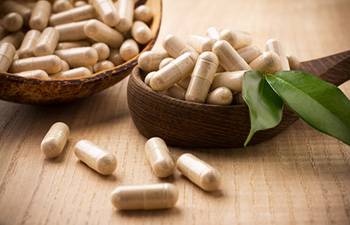
There are two types of capsules available. The first are gelatin capsules that contain ground kava root that has been infused with a powdered kava extract. There are also gel caps available that contain a liquid kava extract. Both are convenient ways to have kava when you are on the go. When purchasing either type of capsule you do want to make sure that you look for a standardized rate of kavalactone extracts to ensure you are getting a quality product.
Whichever way you choose to consume kava it can be a very effective treatment for stress and anxiety. You can unwind at the end of a long day with a cup of kava tea. Or maybe you prefer to use a few drops of tincture to help relax in an anxious situation. Either way, kava is a useful herb to have stocked in your herbal apothecary in these stressful times.
However, in addition to these benefits, the substance can produce a variety of negative and potentially harmful effects as well.
Warnings And Cautions:
There are multiple safety concerns regarding kava use, including liver failure and cirrhosis of the liver.
Kava can also interact with several other drugs, such as benzodiazepines and anti-depressants. For this reason, it is important to consult a doctor before making the decision to take kava.
You may also like:
 46 Best Teas for Every Ailment
46 Best Teas for Every Ailment
Ask Dr. Nicole: What are the best herbal remedies for anxiety? (Learn More)
Everything You Need to Know About Chicory
Soak Your Troubles Away with Homemade Tub Tea
Vervain: The Medicinal Plant that Should be Part of Your Apothecary

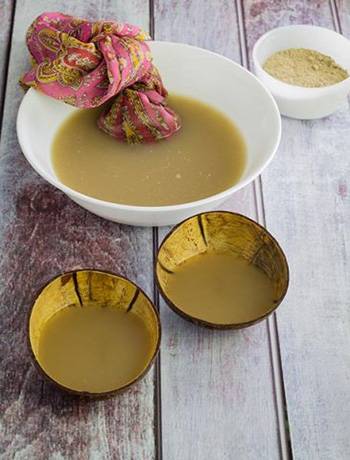
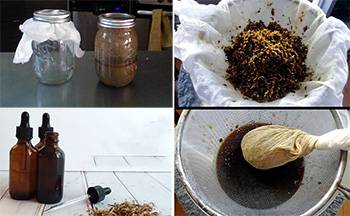
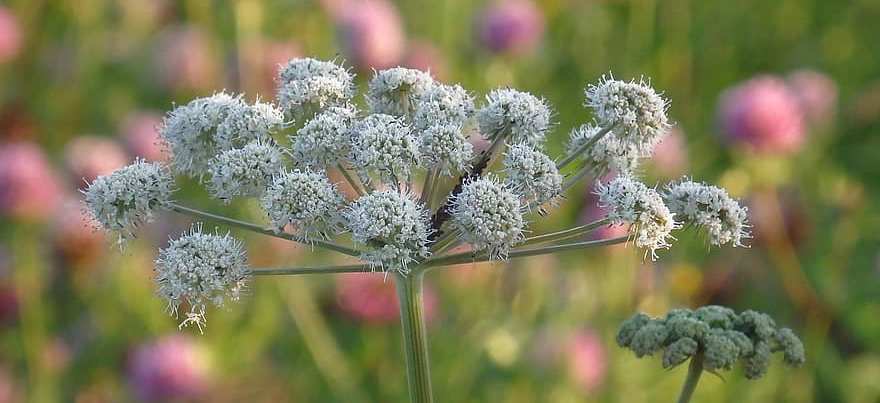
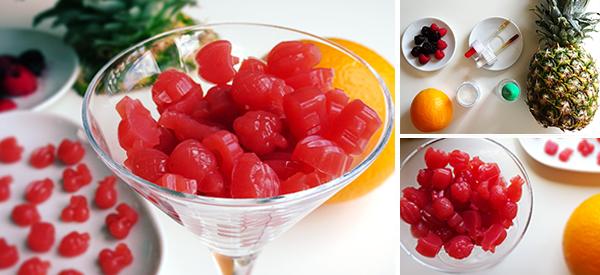
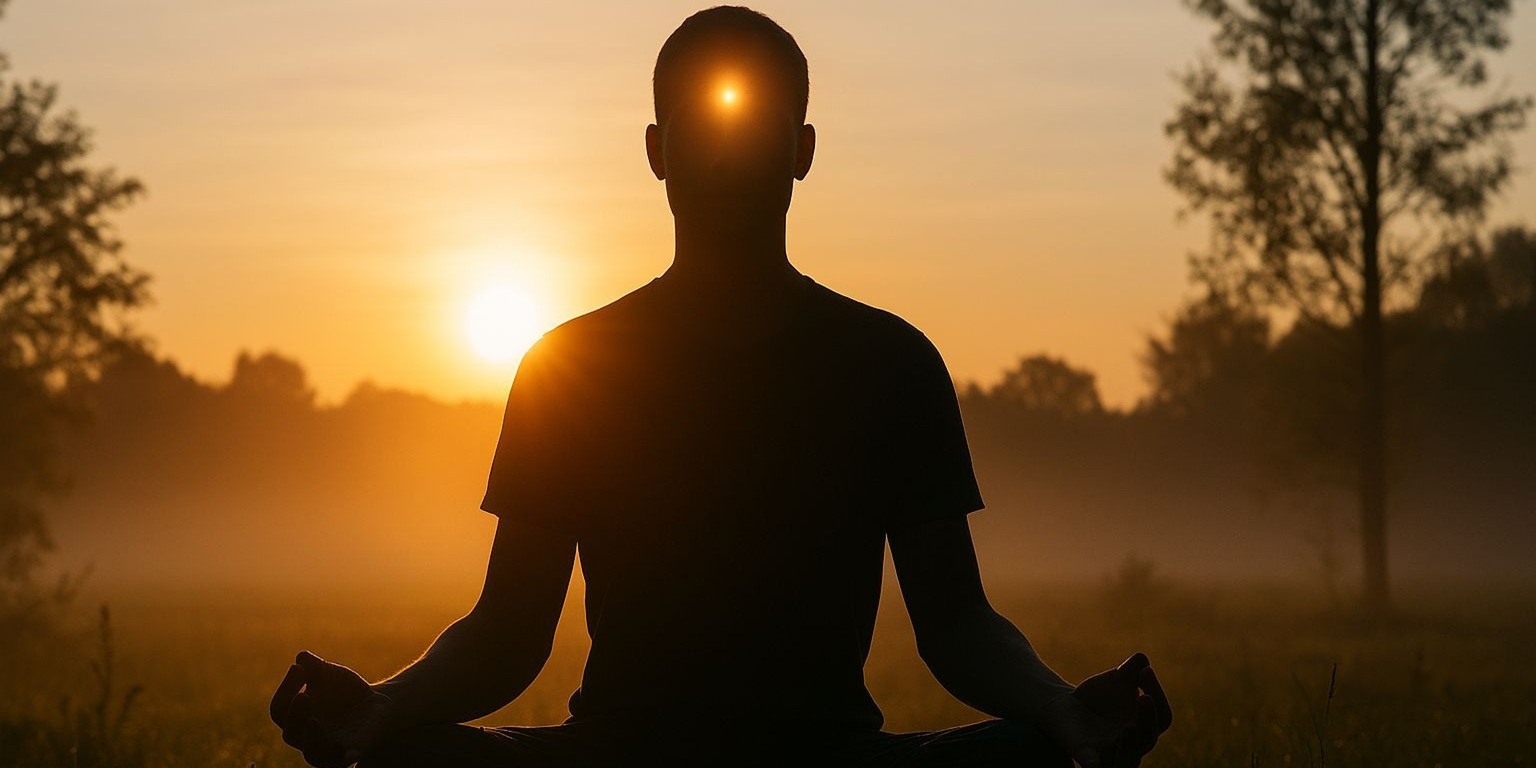
I’m very disappointed that I didn’t see any of the many many warnings that come with using this Earth. Mostly because it interacts usually negatively with many many many pharmaceutical drugs. Especially for the ones that treat anxiety depression and other brain chemistry altering medications. So anytime somebody talks about this herb if they want to be professional with it they really need to include the warnings! Also I would like to see more information about why every time this author talks about making a tincture they talked about letting it set in the refrigerator! I can find no information about why this needs to be done and a lot of information from other professionals that actually State this will slow down and negatively react with the extraction process making it so relax is actually extracted from the herb. Keeping it cold during the extraction process actually makes a weaker less effective product. So why is it recommended by this author so much?
Humm! Closer to the top of this article, it is written that you shouldnt use this for long time use, cause liver damage, not to take with medications, or alcohol.. I would say those are warnings on using Kava, I think you must of missed reading that part, I think the lost herbs is professional, and teach what they know… maybe your murmuring is for nothing on the refrigerating Kava
Hi! Just want to mention that hot water should NOT be used when preparing kava. I used to live on the Big Island and traditionally kava is always prepared with cold water. The hot water destroys all of the beneficial and healing properties of the kava.
Lost Herbs is totally professional….warnings/contra indications are always included with every post and the information provided is informative and totally accurate…..
Hi Deborah,
Thank you so much for your support!
God bless!
I find all of these articles very informative and did see important warnings about using this particular herb. I trust the author enough to realize that there must be a good reason for refrigerating this while processing it. Mr. Lane, I think you should find a page to frequent that you’re happier with, since you seem unhappy with this site. I’m sure there are many, like myself, who appreciate the work of this author and find the information informative and sufficient. If you don’t, you should just find somewhere else to go instead of denigrating this site! I think it’s a wonderful site!
If the author of these articles would take the time to answer people’s questions then there would be much less of an issue but they never seem to reply with an answer. Add to it as a 31-year certified medical herbalist I always question when things go against standard practices. And along with many in the Herbal community, we see her recommendations and if not quite odd, some go right against standard herbal scientific findings.
Hi William,
We really appreciate you took the time to send us your feedback.
The use of kava remains controversial. While proponents believe that kava can be safely used for the short-term treatment of anxiety, others contend that the potential risks far outweigh the benefits.
Research has indeed suggested that kava may cause liver damage. It appears to be hepatoxic, meaning that it can damage liver cells. Because of this, authorities in several countries, including Canada, Great Britain, and Germany, have restricted or banned kava. Kava kava is still legal in the U.S.
Kava kava can also interact with several other drugs, such as benzodiazepines and anti-depressants. For this reason, it is important to consult a doctor before making the decision to take kava kava.
We apologize if the warnings were not clear enough in this article. We already modified the warning section for this article.
God bless!
I like this page,and side effects are very high even in conventional medicine not to mention greed too.Nature have us solutions before synthetic pharmaceuticals decided profit was more important than people.Work with Nature and it always gives back. Well done
very informative, read later
Is Kava and Skullcap the same?
Hi there everyone out there that is interested in natural medicine. Thank you for sharing your opinions and knowhow with us. The warnings were loud and clear and sometimes whenever we post what we want to post, we overlook all warnings due to what we may have witnessed or what the product has caused us feel like or in others we may know and then forget that everyone reacts differently to different foods and or medications we may use or tried to use in our lives. You are the one using this and as such you also know your body better than anyone else, sometimes even better than your own doctor. Therefore you should listen to what your own body is telling you and stop using it from the moment you notice major or minute signs of distress or otherwise. Thank you for your input and wide range of knowledge.